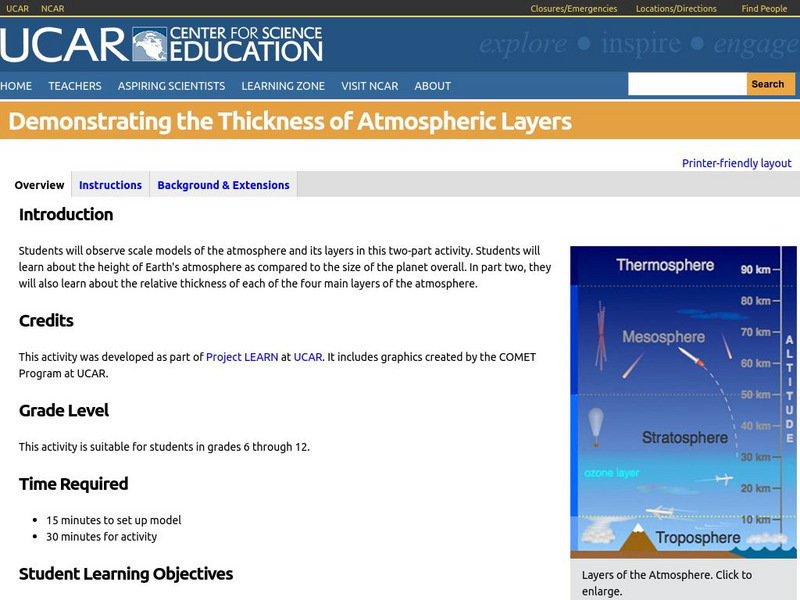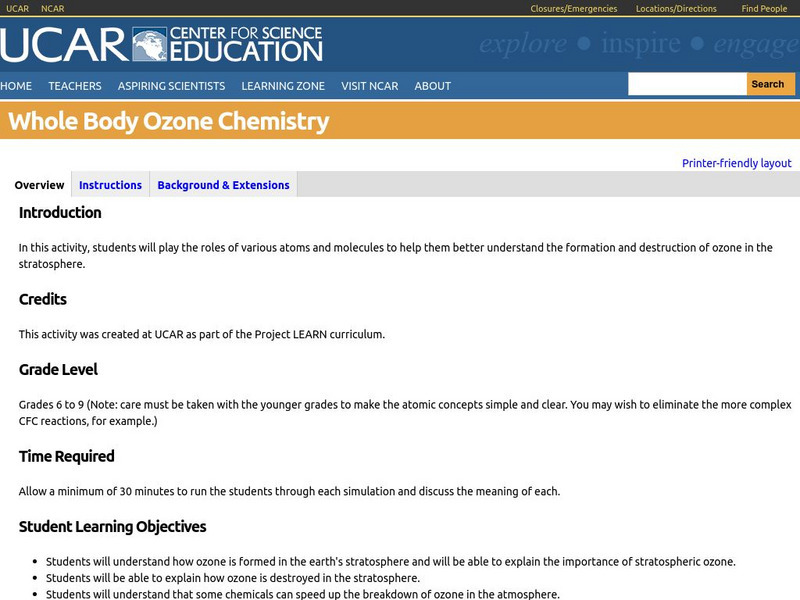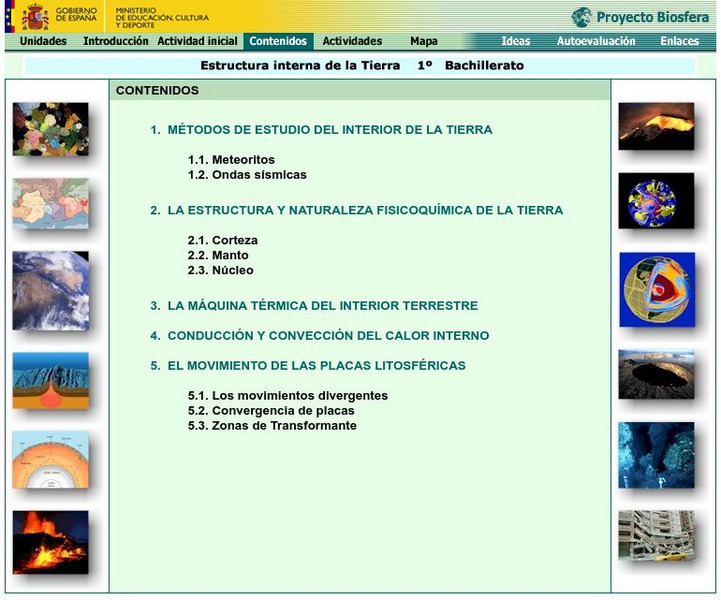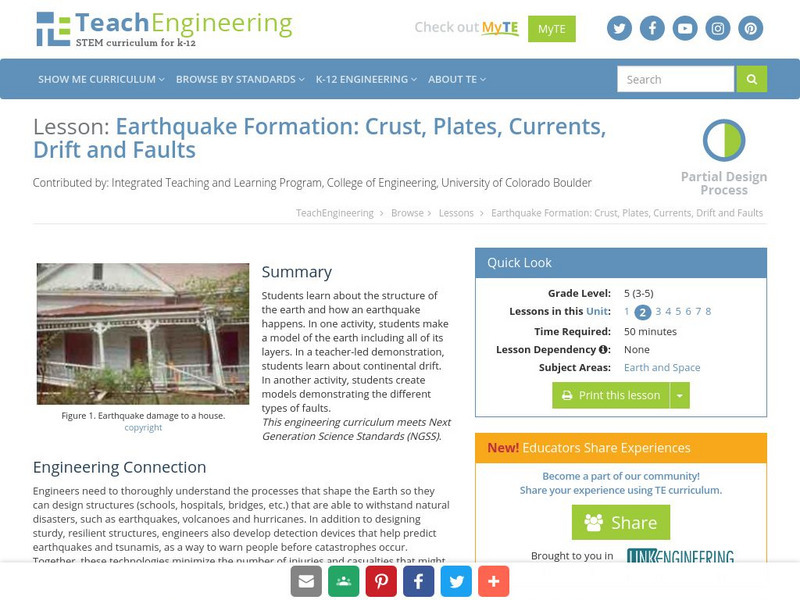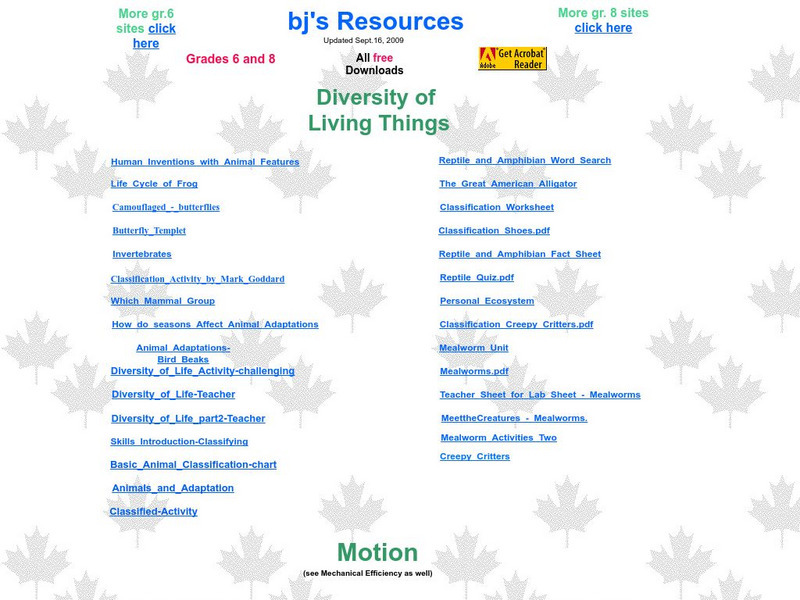Smithsonian Institution
National Museum of Natural History: Global Volcanism Program: This Dynamic Planet
Interactive activity that allows the learner to make their own regional map using layers of their choice such as volcanoes, craters, plate tectonics, or earthquakes. This map of the Earth zooms in and out, highlights essential processes,...
Utah State Office of Education
Utah Science: Rocks, Minerals, and Soils Introduction
Dig into the layers of activities exploring and investigating minerals and how they are related to both rocks and soil.
University Corporation for Atmospheric Research
Ucar: Introduction to the Atmosphere
A detailed overview of the Earth's atmosphere, with explanations about atmospheric properties, the structure of the atmosphere, its four layers, atmospheric processes, energy heat transfer, conduction and convection, and radiation. All...
University Corporation for Atmospheric Research
Ucar: How High Does the Atmosphere Go?
This lesson shows the parts of the atmosphere and their size (thickness) relative to the size of the Earth. It includes background information, lesson outline, links to standards and assessments.
University Corporation for Atmospheric Research
Ucar: Whole Body Ozone Chemistry
In this activity, students will play the roles of various atoms and molecules to help them better understand how ozone is formed in the earth's stratosphere.
Other
Matter Project: Seismic Waves
Seismic waves are studied to better understand the ground beneath us, the layers of Earth and points of interest for earthquakes. Better understand the types of waves, what substances they may travel through and how, and gain a clearer...
National Institute of Educational Technologies and Teacher Training (Spain)
Ministerio De Educacion: Estructura Interna De La Tierra
In addition to exploring the inside of the earth, this unit will explore the consequences on the dynamics of the outer layers; it will deepen the knowledge of plate tectonics and the movement of the plates in the past. It includes 16...
University of Southern California
Usc: The Composition of Ocean Water
This site gives background information to ocean water and its contents. It has a link to an detailed chart showing the minerals and their content amount in ocean water. It also has links to activities.
TeachEngineering
Teach Engineering: Earthquake Formation
Students learn about the structure of the earth and how an earthquake happens. In one activity, students make a model of the earth including all of its layers. In a teacher-led demonstration, students learn about continental drift. In...
US Geological Survey
Usgs: Volcanic Hazards, Features, and Phenomena
Site from the U.S. Geological Survey provides a brief list of volcano terminology including descriptions as well as links to major menus.
My Science Site
Life Systems: Cells, Tissues, Organs
Extensive site for teachers provides some helpful resources that pertain to plant and animal cells. Includes a microscope diagram as well as plant, animal and pond labs. Also contains links to structures and mechanisms, matter and...


